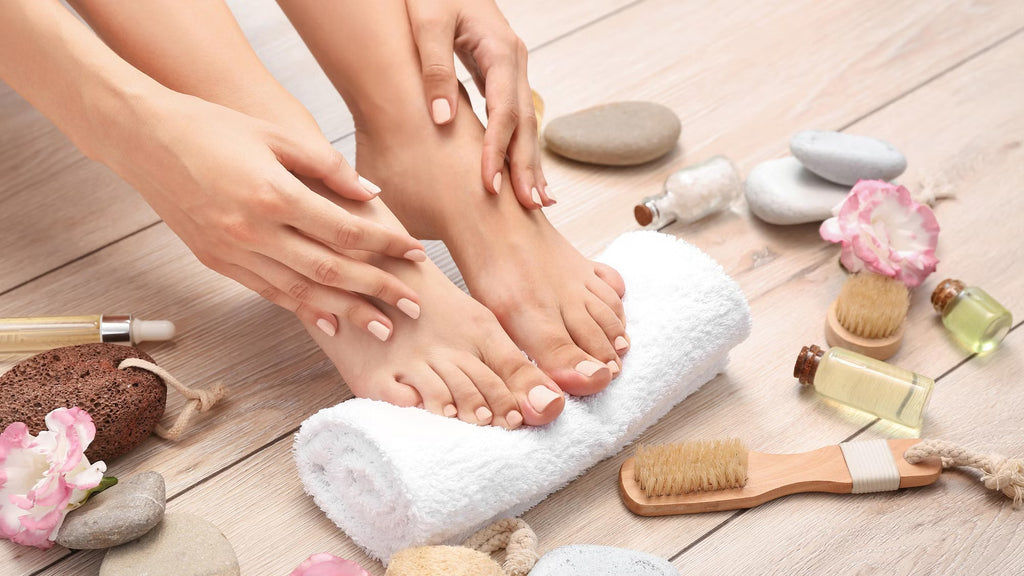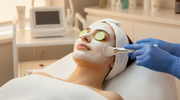How to take care of cracked heels... here are some dos and don'ts

Some of the common reasons for cracked heels are cold, dry weather, ill-fitted footwear, walking barefoot, long hot water baths, diabetes, etc
Some of the common reasons for cracked heels are cold, dry weather, ill-fitted footwear, walking barefoot, long hot water baths, diabetes, etc.
There are certain things you can do to prevent these cracks from appearing and some things to treat them once they have appeared.
Here are certain dos and don'ts for foot care to prevent cracks or heal them sooner.
Start with liberal moisturisation: Pick up a thick, heavy-duty moisturizer and apply liberally on feet at least twice a day. Massage the cream till it is completely absorbed in your skin.
Use occlusion technique: To keep the hydration intact for a longer time, wear petroleum jelly on top of moisturiser. This retains water in the skin. At bedtime, usage of cotton socks also helps with longer moisture retention. Lanolin and beeswax are other common occlusives
Check ingredients in your foot cream: Skin of the heels is very thick. It has a thicker dead skin cell layer, called stratum corneum. This is protective, since the feet bear the body pressure. When choosing a foot cream look for ingredients such as urea or lactic acid. These are humectants, meaning, they have the capacity to hold moisture in the skin for a longer time. A urea 5-10% cream of a lactic acid/ ammonium lactate 12% cream is most ideal for foot care.
Pamper your heels: To remove the dead skin cells, soak your feet in lukewarm water for 10 minutes and use a pumice stone to gently scrub off the top layers of your skin. Moisturize it immediately after scrubbing off.
Use cotton socks: Cotton fabric is best suited to the skin. It's non-allergenic and does not increase skin sensitivity.
Try Keratolytics: If simple moisturizers are not enough, use agents that dissolve the bonds between skin cells, allowing for better skin exfoliation. Glycolic acid, salicylic acid are my preferred agents for this purpose.
Don’ts for foot care
Over over scrub: Over zealous scrubbing of dead skin cells can cause disruption of natural skin barrier. This can do more harm than good.
Skip socks: Direct contact with footwear made of leather or rubber or have dyed fabrics can cause allergic reactions and aggravate the situation of cracked heels.
Wearing ill-fitted footwear: With ill-fitted footwear the pressure is unevenly distributed on the sole of the feet, this causes certain pressure points to thicken up, leading to calluses and cracks. Avoid open- heeled shoes such as flip-flops or slingbacks or shoes that have worn down.
Fragrances: For cleansers and moisturizers avoid fragrances and colors. These irritate the skin, draw out skin moisture and hamper skin healing.
Cleansers that lather: Using cleansers that lather mean they have a capacity to draw out natural oils from the skin, this can worsen cracked heels.
Using oils only: Oils do not provide moisture to the skin, they are in fact occlusives that help prevent moisture loss from the skin. The ideal way to use oils is on top of a rich, creamy moisturizer. Oils help lock in this moisture for a longer period of time.
Walking barefoot: Sticking of dust and dirt on your heels can potentially irritate your skin leading to quicker loss of skin moisture. Wear footwear that cover your heels while walking.
If you have a medical condition such as thyroid disorder or diabetes, it's best to consult a dermatologist to help you heal cracked heels and prevent superficial infections of the skin.
(Dr. Jushya Sarin, M.B.B.S., M.D. (Dermatology, Venereology & Leprosy), MRCP (SCE), UK)


